Fijian Village Visit Etiquette
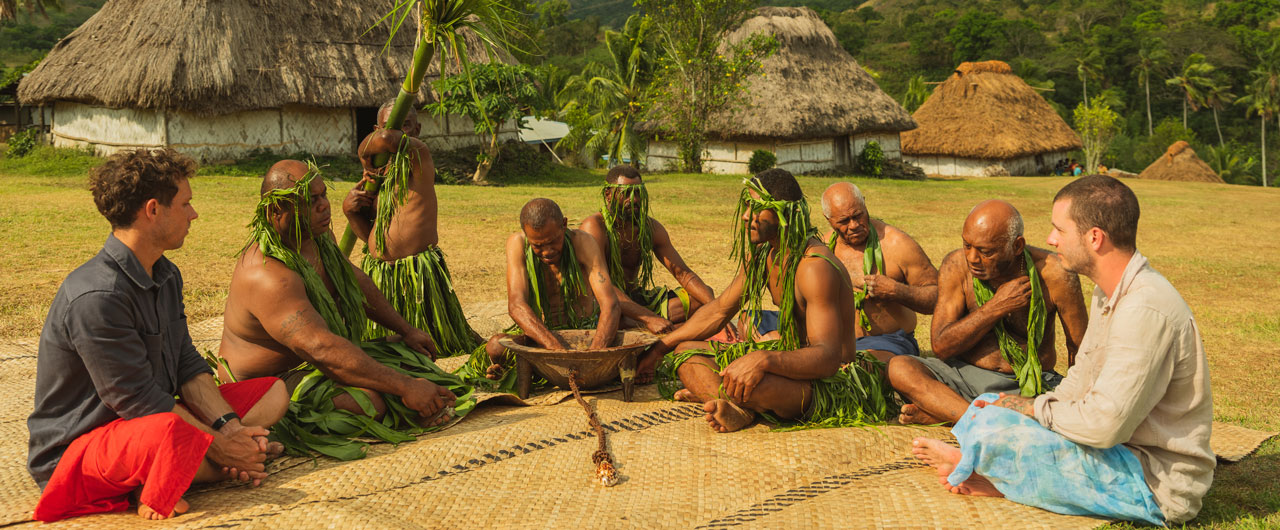
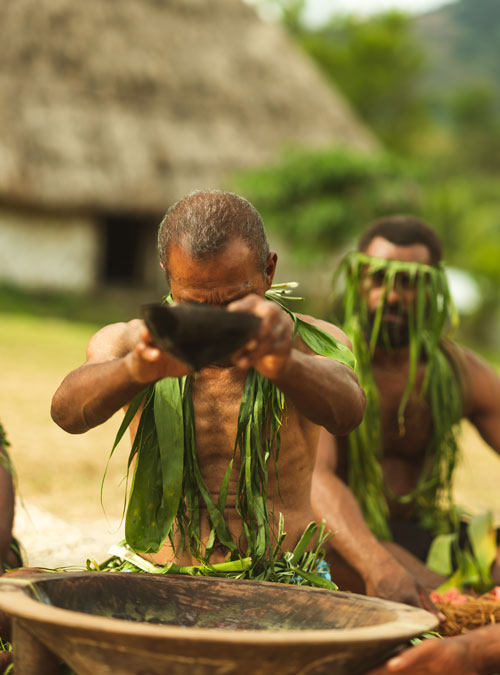
10 Etiquette Tips To Remember When You Visit A Fijian Village
Hospitality comes naturally to Fijians, but any gestures you make towards upholding our customs is always appreciated, especially in the more traditional villages. Follow the local’slead (and this guide) for a respectful and enriching village experience.
1. Offer A ‘Sevusevu’ or Gift of Kava
Kava, a traditional Fijian drink made from the root of the pepper plant – Piper methysticum -holds a special place in Fijian culture. It’s customary to present a small bundle or packet of powdered kava to the village chief to seek permission to enter their communal lands as a guest and to show your appreciation for their warm hospitality.
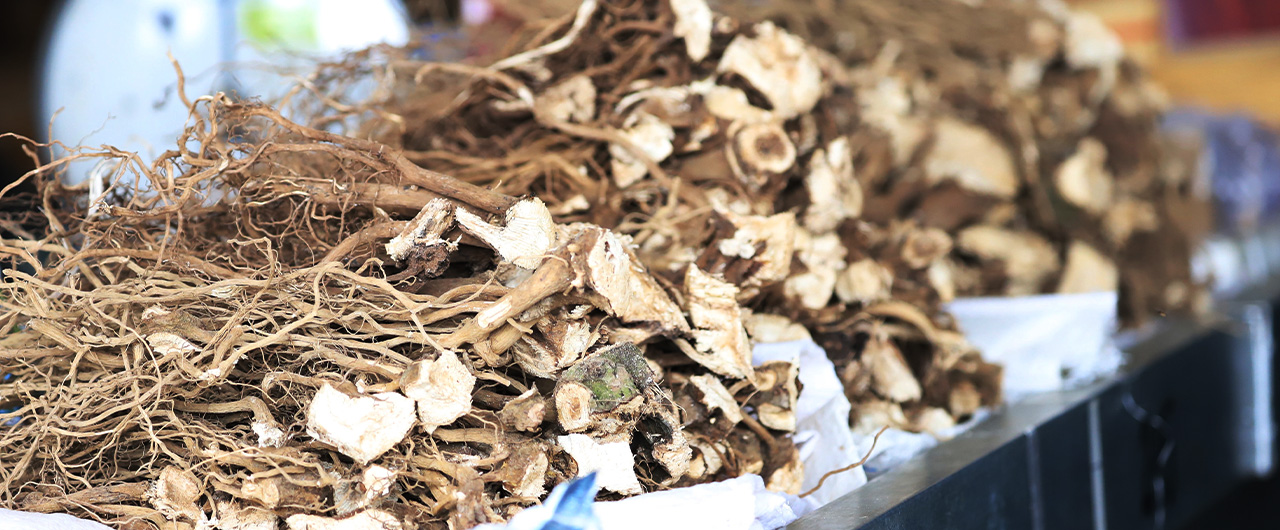
2. Participate in a Sevusevu Ceremony
The sevusevu ceremony starts formally with loosely scripted dialogue between the parties of respect and gratitude. There is even seating etiquette so follow your guide’s instructions and stoop low respectfully as you make your way over to your allocated spot.
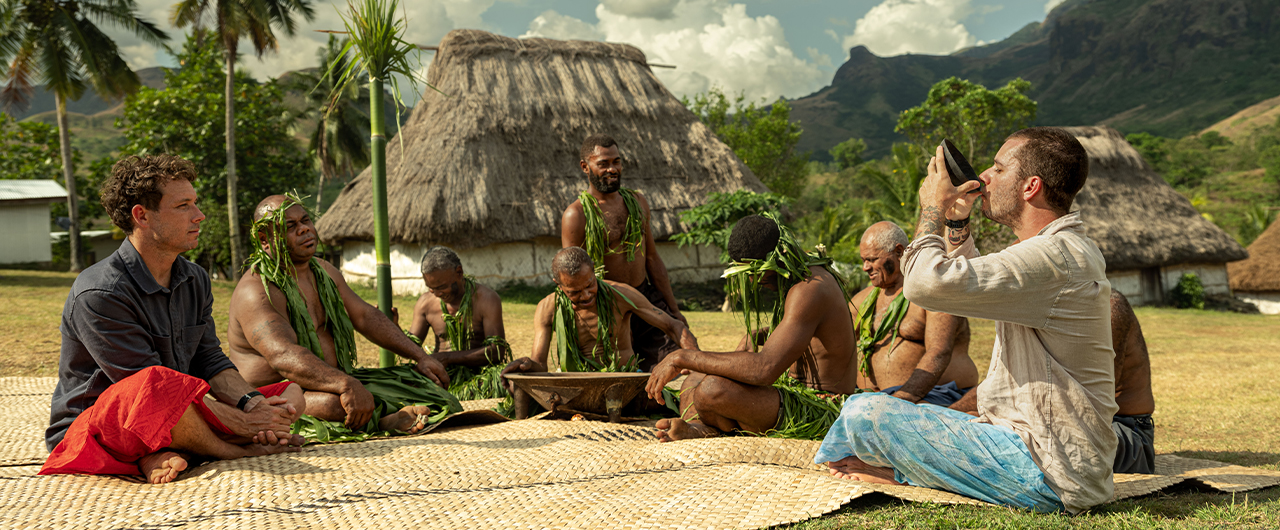
3. Dress modestly
It’s respectful to cover your bare shoulders and legs when visiting a Fijian village. Women often wear long skirts or dresses while men opt for T-shirts and knee-length shorts. Alternatively, wrap ‘sulu’ (sarong) around your waist when in the village, so that it can be easily removed when you leave.
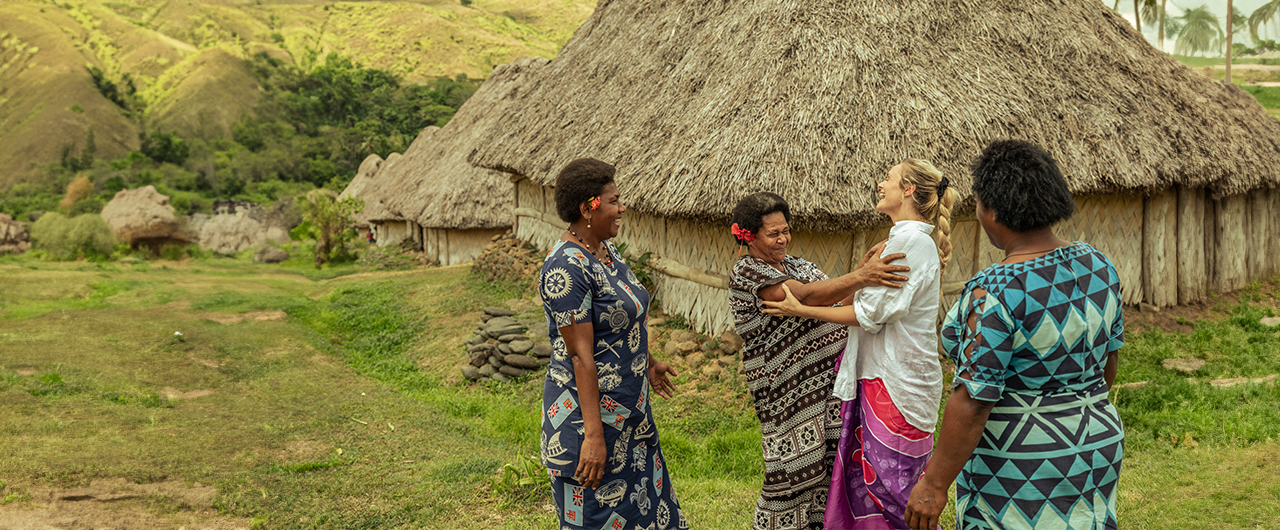
4. Remove Your Hat & Sunglasses
As a sign of respect for the chief, please remove your hat, sunglasses and carry your bags in your hands (rather than shoulders) when walking around the village.
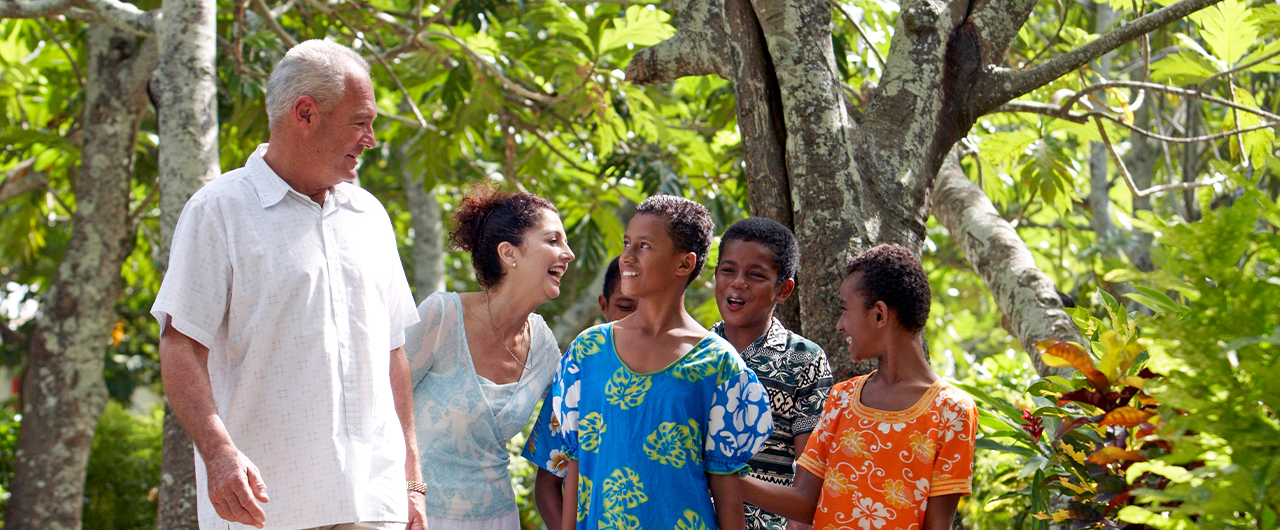
5. Ask Permission First
Before taking photos or wandering into someone’s home or a communal area, it’s customary to seek permission. Fijians are known for their warmth and a simple request first, goes a long way in showing respect. Don’t forget to also remove your shoes by the door before entering any village building.
6. Respect Taboos
Every village has its unique ‘tabu’ (taboo) - cultural norms. For many villages, it is disrespectful to touch someone’s head which is said to be sacred. Always inquire about local taboos to avoid unintentional offense and demonstrate your respect for local customs.
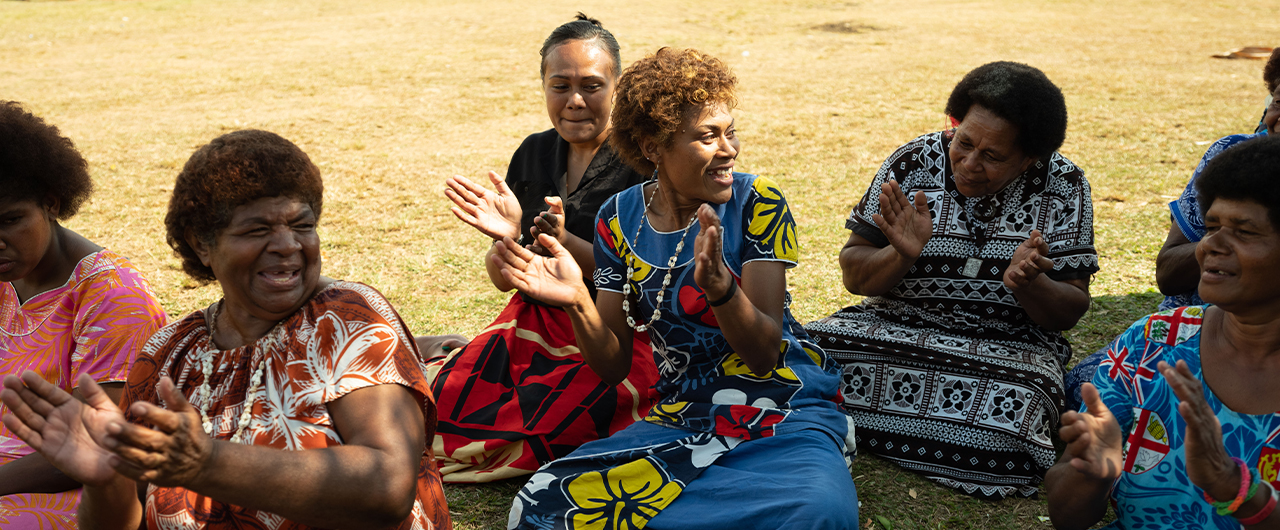
7. Lower Your Voice
To maintain tranquility of the village, speak softly and engage in conversations respectfully. This helps create a harmonious atmosphere and shows your consideration for the villagers.
8. Share A Meal with Locals
If you’re invited to share a meal with your hosts, consider it a special privilege. Fijian cuisine is delicious, and this is a beautiful opportunity to connect with the community and immerse yourself in the local way of life. Most meals will be eaten cross-legged on a mat. Be sure to wait for the ‘masu’ (prayer) before you tuck in and thank your hosts for their hospitality after the meal.
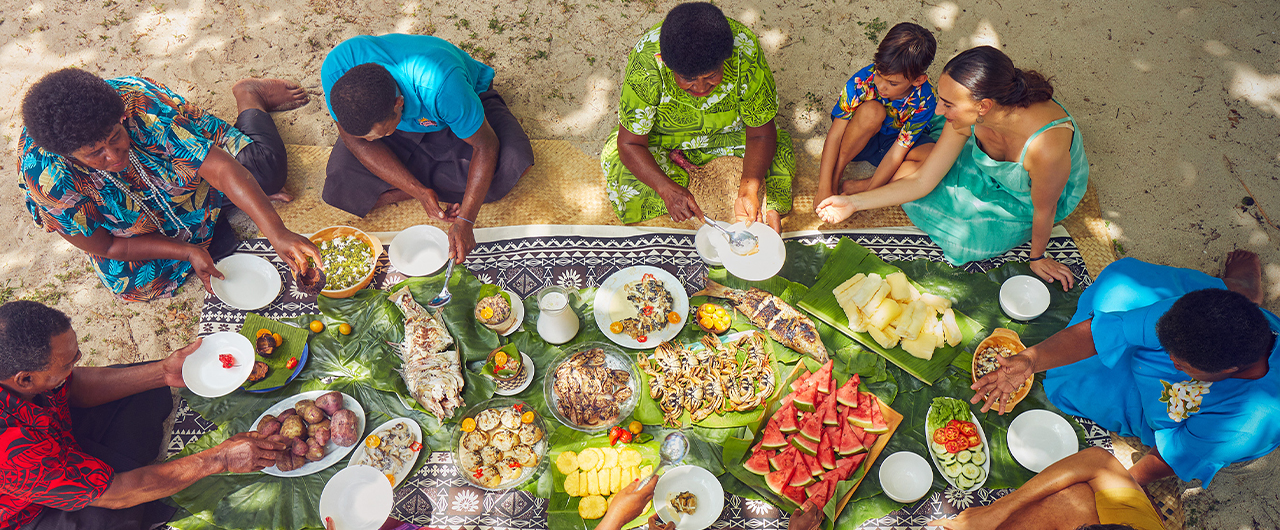
9. Participate in Activities
Don’t be shy! Join in the village’s activities and experiences. Whether its learning to weave traditional mats, drinking kava or dancing to lively Fijian music, participation is a fantastic way to break the ice and bond with the community. Locals will appreciate your enthusiasm for their culture.
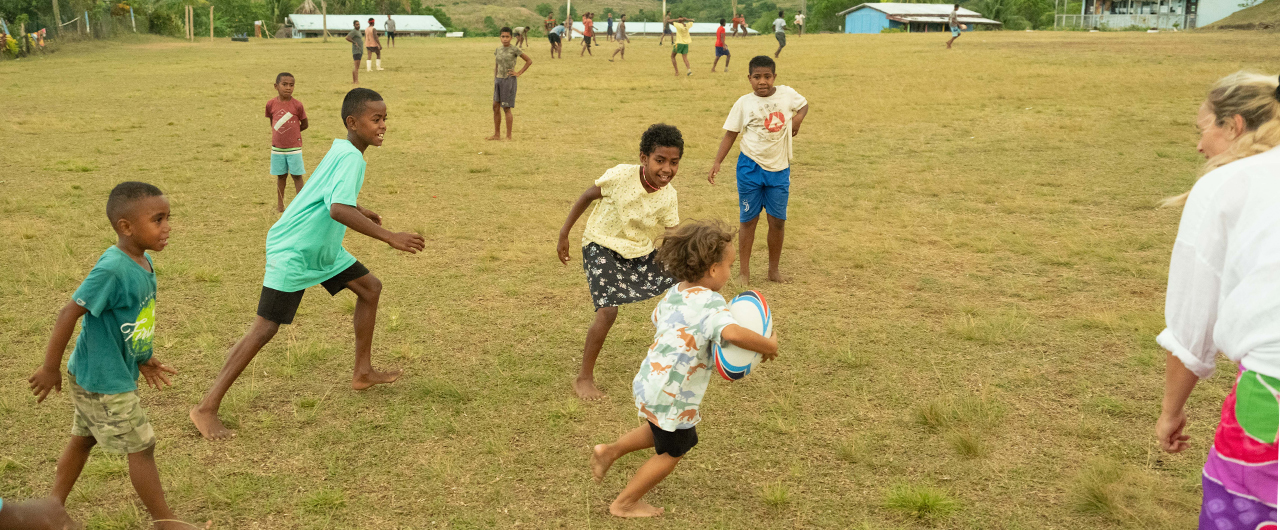
10. Don’t Visit on a Sunday
Sundays are sacred, so most village tours do not run. However, if you are staying in a village homestay, reserve your best attire for the Sunday church service. Even if you are not Christian, the harmonious choir singing that accompanies the sermon is always beautiful.